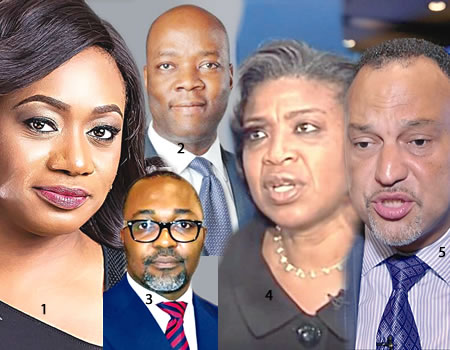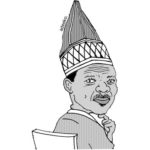John Maxwell posits, and quite a number of other experts agree with him, that everything rises and falls on leadership. The import of this is that the leader is the driving force for whatever happens in an organization. It is what the leader encourages that flourishes; whatever he does not support flattens. Leaders shape and mould their organizations. Really, leaders produce organizations after their own kind. As a leader is, so is his organization. So, leaders are responsible for the growth of a culture of excellence in their organizations. Having a culture of excellence is non-negotiable for an organization that wants to last the distance because the market place has become so competitive that only organizations that stand out stand a chance of survival.
ALSO READ: I want to lose weight
What is excellence?
Excellence is exceeding set standards. In any human endeavour, there are set standards that separate success from failure; these are the irreducible minimum that can be tolerated from anyone or organization involved in any activity. Meeting the standard is nothing exceptional because it is expected. It is when the standards are exceeded that excellence is achieved.
Customers have expectations which are hinged on acceptable minimum standards. However, to sustain customers’ patronage requires exceeding their basic expectations. For as long as these expectations are met, the customers have no complaint. However, meeting the customer’s basic expectation is not a guarantee for repeat patronage. What never stops to ensure the return of the customer is exceeding his expectations. Once the customer knows that he will get more than his bargain, he never stops his patronage. In addition to that, he becomes an evangelist who shares the ‘good news’ of his expectation being exceeded with others. It is having customers who are evangelists that separate a thriving organization from a struggling one and it is for this reason that leaders always endeavour to put in place a structure that encourages a culture of excellence.
How leaders inculcate excellence in workforce
There are a number of ways through which leaders develop a culture of excellence in their organizations. Here are some of them.
They give clear expectations
The starting point for building a culture of excellence in teammates is by laying bare the expectations right from the outset. People can only achieve target that they are aware of. To get the best from colleagues, they must not be left in doubt about what the expectations are. So, leaders who want to drive excellence communicate their expectations; they never leave their people guessing.
In the book, One Minute Manager, Ken Blanchard speaks of one minute goal setting in which the team leader engages each team member in a session to discuss and agree on what his expectations are. Through this meeting, both the leader and the teammate are on the same page on what to expect. Very often in many organizations, there is no correlation between what the subordinate assumes his function is and what his superior believes his duties are. This often leads to disappointment for the superior and frustration for the subordinate. Unless the expectation is properly communicated and allowed to be assimilated, its chances of being exceeded will be very slim.
Those who excel are those who have no doubt about what is expected of them and strive to exceed the expectation.
Create hunger for something better than a pay
Most people work to earn a living while very few work to make a life. Both get their pay but the latter get a little more; they build a legacy. In any human endeavour being common is very easy. It is common to come across common people in every sphere of life. Being common is not necessarily an outcome of laziness; many hardworking people are still common. What is required to be common is to make no attempt to go beyond the irreducible minimum. In spite of their innate ability, many people merely do enough to justify their pay; they make no effort to go beyond the call of duty. So, they are unexceptional and stay common. That is where leadership comes in. A leader has a responsibility to create a hunger for doing more than the basic in every one that comes his way. Every leader must encourage those he supervises to live and work for something beyond their wage. While meeting expectations is the minimum, it is awkward to expect the best to go to the fellow who only contributes the minimum. It is therefore important that every leader should endeavour to motivate those who work with him to strive for excellence.
William Cockran and Winston Churchill
Having lost his father at the age of 20, Winston Churchill was consumed by a passion to become a politician like his father, Lord Randolph Churchill, who served as Chancellor of the Exchequer for the Parliament. It was at this time that he came across William Bourke Cockran, an Irish-American politician, who mentored him. Cockran was one of the outstanding orators of his time. He also served as an adviser to three American presidents. On getting to know of Churchill’s aspiration, he persuaded him to switch from wanting to get into politics because of his father was one to desiring a career in politics for the benefit of mankind. He ingrained in him that selfless service was the essence of leadership, schooled him in the art of swaying the public through oration and taught him about free trade and free economies.
Cockran mentored and moulded Churchill, who later became the British Prime Minister during the Second World War, and was one of those who saved Western civilization through his grit, economic ideology and oration. The story of Churchill would definitely have been different had it not been for the input and influence of Cockran.
Great leaders always create a hunger that is higher than bread and butter in their mentees.
Encourage challenge of status quo
The human race has experienced series of development because some members of the human community are never satisfied with the status quo, they keep challenging current accomplishments based on the belief that what has already been done can be made better. That is what moved the telephone from what Graham Bell invented to what we currently have. It is the same desire that got the computer reduced from the mainframe size to the pint size of a mobile device. It is the same quest that made it possible for man to build automobiles, build aircraft, conquer the sea and the space. A hallmark of excellence is dissatisfaction with the status quo. Those who are consistently dissatisfied with the status quo always come up with new ideas and inventions.
To create a culture of excellence, a leader must encourage his teammates to challenge the status quo. Unless spurred by the leader, it takes a lot of courage for a subordinate to challenge what the organization has come to see as the standard. So, the onus is on the leader to create an environment that will make it possible for anyone in the organization to question the standard practice with a view to evolving a better practice.
A question that should never cease from the lips of a leader is “Isn’t there a better way of doing this?” The answer drives the organization closer to the realm of excellence.
Model excellence
The easiest way leaders reproduce their beliefs in their followers is by practising same. Followers do what they see their leaders model. Therefore, to encourage a culture of excellence, the leader must never consider convenience. Convenience is the albatross of excellence. Convenience always smothers excellence. Where convenience abides, excellence cannot exist. Where convenience is sought, excellence cannot be found. Making excuses is a way of seeking convenience. Procrastination is a way of courting convenience. Giving less than the best is embracing convenience. If excellence is the end, convenience cannot be the means. A leader who wants to stimulate excellence in his teammates must eschew convenience.
To both the leader and the follower, excellence is indubitably exacting but it is unarguably rewarding.
Empower others
It is only those who know new things that can do new things. Therefore, to make it easy for team members to go beyond what their current level of performance is will require their exposure to new things and that happens when they are trained. Training develops capacity of individuals. It also opens them to what others are doing and challenges them to do the same or even surpass it. Leaders who want excellent performance have to invest in training and capacity building of their staff.
Appreciation
The average person is satisfied with average performance. Since what the leader desires is excellence, every trace of excellence should be appreciated by him. The leader should seize every opportunity to publicly acknowledge those who strive to be outstanding in their assignments. Apart from being a fillip for those already toeing the path of excellence to continue, it also challenges those comfortable with the status quo to move out of their comfort zone and embrace excellence. Personal letters of commendation, public acknowledgement of their contributions as well as giving them mementos are some of the ways through which the leader communicates his appreciation to those who strive to stand out.
Last line
Organizations that excel never rest on their oars.






